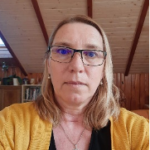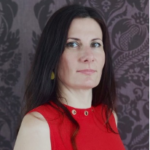The idea behind the «One day, one team, one chapter…» series is to present the four books published in the framework of the ICSEM Project and the Empower-SE Action, Social Enterprise in Asia, Social Enterprise in Latin America, Social Enterprise in Western Europe and Social Enterprise in Central and Eastern Europe, and to introduce the so many incredible people who took part in the crazy “ICSEM adventure”!

From the work integration of disabled persons to a broader understanding of social enterprise
This chapter summarises the history and current status of social enterprise in the Czech Republic. The long tradition of solidarity, mutual-help organisations, foundations and cooperatives in the country was interrupted by the period of socialism. The “Velvet Revolution” and the development of the civil sector after 1989 constituted the basis for the emergence of current social enterprises.
The term social enterprise is still not well-known in the Czech Republic. The concept of social enterprise is mainly connected with the employment of disabled people; the legislative background supports these social enterprises by providing subsidies for the creation of jobs for these people according to the code of employment. However, thanks to the call issued by the European Social Fund, the concept of social enterprises has become broader and now also includes the employment of people belonging to other groups that are considered as socially disadvantaged.
In spite of the lack of a legal form dedicated to social enterprise, we were able to identify four major SE models, which correspond to a large extent to the “international typology of SE models” put forward by Defourny and Nyssens.
The main institution which focuses part of its work and research on social enterprise is the Faculty of Humanities at Charles University in Prague. Social economy and social enterprise constitute one of the main research topics of this Faculty’s Department of Civil-Society Studies, in connection with foreign institutions since 2002.
The country team: Marie, Kateřina, Jaroslava, Durmish and Věnceslava (Czech Republic)
Marie Dohnalová, a committed EMES member (see her profile here), is an Associate Professor in the Department of Civil Society Studies, Faculty of Humanities, Charles University in Prague. She founded the master and doctoral programme focused on the civil sector and civil society. She is a Czech leading expert on the topic of social enterprise; she has led many research projects on this topic, verified foreign methodology for defining the Czech social enterprises and published over ten books on the social economy.
Kateřina Legnerová is also an EMES member (see her profile here); she is an Assistant Professor in the Department of Civil Society Studies, Faculty of Humanities, Charles University in Prague and in HRM Department of Business and Prague University of Economics and Business. She is involved in research on social topics, such as the employment of specific groups. She has published books on human resources management and the social economy.
Jaroslava Hrabětováholds a MA in Social Policy and Social Work, MA in Security and Law Studies, and a Doctorate of Jurisprudence. She is currently a PhD researcher at the Department of Civil Society Studies, Faculty of Humanities, Charles University, Czech Republic. Her latest research is focused on measuring and evaluating social enterprises. She has been interested in the third sector for a long time, as an employee of a non-profit organisation, a member of expert commissions and a volunteer.
Durmish Guri holds a Master Degree from the Institut d’études européennes (France). He has over fifteen years of experience in the field of EU programme/project management, evaluation, research and training. He worked as a senior consultant for GLE (UK); as a teacher for the Department of Civil Society Studies, Charles University (Czech Republic) and for “Pavarësia” University (Albania); as head of the Programme Unit for the Regional Council of Vlore (Albania); and lately, as Director of External Funded Resources and Knowledge Management for the Council of European Municipalities and Regions (Belgium).
Visit the Routledge website to get information about the “Social Enterprise in Central and Eastern Europe. Theory, Models and Practice” book as well as the full Social Enterprise and Social Innovation series. You can also contact these national researchers to learn more about their work or download the ICSEM Project’s flyer here.





